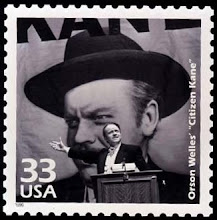
The immense outpouring of affection recently at the loss of
Maurice Sendak filled me with joy and sadness—joy at the abiding legacy he left
with so many people, and sadness because I was not one of them. I never grew up with Where the Wild Things Are,
or any of his other books. I was
probably in high school before I was even aware of who he was, and while that
wasn’t too old to appreciate his genius, the opportunity his books had to tap
into my childhood impulses of defiance, giving tacit approval to less decorous
desires, was past.
Mine was a childhood of “Children should be seen and not
heard”, of bedtime Bible stories and Little Golden Books. Maurice Sendak, Judy Blume, were simply not
on my radar at all. The only element of
subversive role modeling in my life, embracing anarchy and reveling in chaos,
were the Marx Brothers.
To my parents, they were silly. Cartoonish.
With cute musical numbers. In
short—harmless.
But while other classic comedians I was allowed to watch
might fall into that characterization—Bob Hope or Danny Kaye, say—I knew the
Marxes were different. For they weren’t
cowards. They weren’t clowns. They were jesters, fearless in the face of
authority. They were brazen with women,
insulting toward tough guys, and irreverent towards anyone who told them what
to do. They were one-of-a-kind and hilarious.
And I loved them. For they were a balm in a landscape of suburban propriety I had around
me. And the fact that my parents didn’t
seem to get it—the satire, the innuendo (much of which went over my head, too),
the blatant disrespect they represented—made them that much richer to me. In a still water world, they were my din and
tonic.
A Day at the Races (Wood, 1937) may be their last largely satisfying
movie. Once they moved to MGM, they
began to gradually lose their fizz, but this was only their second film at the
studio and their energy was still suitably manic and unrestrained, though some
telltale warning signs (overly produced musical numbers, an increased
sentimentality) are there, too.
While the Marxes would usually run rampant in the corridors
of the elite (opera circles, ivory tower universities, luxury cruise liners),
Races is unusual in that it straddles itself between a highly formal
environment (the Shelton sanitarium) and the racetrack, where shysters, con
men, and rascals like Groucho, Chico & Harpo are right at home.
The horse in Races is High Hat, the final hope for the
financially strapped hospital that has just recently acquired Hugo Z.
Hackenbush (Groucho) as its chief-of-staff, at dowager Margaret Dumont’s insistence
(though no one knows he’s actually a horse doctor). That the racetrack adjoins the sanitarium
means the action can move back and forth, with jockey Harpo and co-conspirator Chico
prepping the horse for the big race. The
less said about Allan Jones, colorless love interest to sanitarium owner
Maureen O’Sullivan, the better.
There are some memorable comedic setpieces. The legendary
Tootsie-Frootsie ice cream negotiation between Chico & Groucho is still
fantastic, and Chico & Harpo’s game of charades is fun, as are the boys’
examination of Dumont & foiled seduction of floozy Esther Muir. And the climactic race is in the boisterous
spirit of the football game in Horse Feathers, which takes a lot of the
conventions of the sport and turns them on their head (and unlike most horse
racing films, this is a steeplechase, which is fundamental in a final twist).
But the film really belongs to Groucho. His phone conversation with Leonard Ceeley is
a miniature masterpiece, and his rumba number alternating between Dumont &
Muir has its own perverse grace. None of
the other Marx boys could hold the screen on their own, for Chico perpetually
needs a partner and Harpo risks becoming too precious left to his devices
alone. But give Groucho a dance floor or
an empty hotel room and he’s master of the house.
And speaking of dance numbers, Races is unique in Marx
Brothers history as being the only one of their films nominated for an Oscar—Best
Dance Direction for the genuinely bizarre “All God’s Children Got Rhythm”,
which manages to combine terrific jitterbugging with unfortunate blackface in a
bizarre tangent that has nothing to do with anything in the story (though the
number is still a step up from another turgid Jones ballad).
The Marxes did end up getting an Oscar—an Honorary Achievement
one in the early 1970s, when only Groucho was left alive. One can only imagine the chaos they would’ve
caused at a ceremony, worthy of Races’ gala or the climax of A Night at the
Opera (still my favorite of their flicks).
But they had to become elder statesmen of comedy to finally get their
due.
Which still, curiously, has not happened with the USPS
yet. For while Laurel & Hardy,
Abbott & Costello, and W.C. Fields have gotten their stamp, the only
mention they’ve gotten has been Groucho in the You Bet Your Life stamp (seen
here as part of the Early TV Memories series, Scott #4414; coupled with horse
racing, Scott #1528). But their real
impact as a group, making them still quite contemporary while the other artists
I listed have dated some over the years, continues to go unrecognized. Having a slate of stamps, with the mirror
scene from Duck Soup, the stateroom scene from Opera, and the barrels in Monkey
Business (to throw Zeppo a bone) would be perfect. And throw Tootsie-Frootsie
in there, too. For the Coconut in all of
us.
For more entries in the Classic Movie Horse Blogathon
For more entries in the Classic Movie Horse Blogathon
